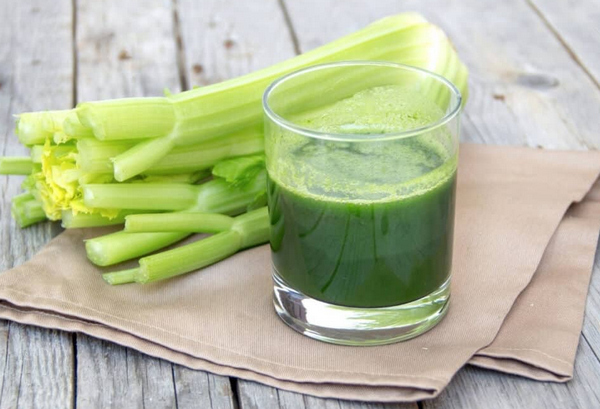Side effects of celery juice on empty stomach + video
Celery juice has gained immense popularity in recent years, with many health enthusiasts and celebrities touting its potential benefits. From claims of detoxifying the body to reducing inflammation and supporting weight loss, celery juice has been hailed as a cure-all for a myriad of health issues. However, like all foods and supplements, it’s crucial to understand the full picture. This includes potential side effects, especially when consumed on an empty stomach.
I Tried Drinking CELERY JUICE on an Empty Stomach for 1 Week :
1. Introduction to Celery and its Nutritional Value
Celery is a crisp green vegetable that belongs to the Apiaceae family. It is low in calories but rich in fiber, vitamin K, vitamin A, potassium, and other essential nutrients. The juice is extracted by blending and straining raw celery stalks, and its concentrated form contains most of the vitamins and minerals found in the whole vegetable.
2. Popularity and Claims
The rise in celery juice consumption can be attributed to the viral nature of social media and the claims made by health influencers. Drinking 16 ounces of celery juice on an empty stomach each morning has been touted as a ritual that offers detoxification, improved digestion, clearer skin, and more.

3. Side Effects of Drinking Celery Juice on an Empty Stomach
Despite the many positive claims surrounding celery juice, there are potential side effects to consider, particularly when consumed on an empty stomach:
a. Stomach Discomfort and Diarrhea
For some people, drinking a large quantity of celery juice on an empty stomach can lead to stomach discomfort, bloating, and diarrhea. This can be attributed to the natural nitrates and salts present in celery. When these compounds meet an empty stomach, they can cause the stomach to produce more acid than usual, leading to discomfort.
b. Dehydration
While celery juice can be hydrating due to its high water content, the natural salts can act as a diuretic, leading to increased urine production. This, combined with the potential for diarrhea, may cause dehydration in some individuals, especially if not compensated with increased water intake.
c. Allergic Reactions
Though rare, some individuals may be allergic to celery. Symptoms of an allergic reaction include itching, swelling, rash, difficulty breathing, and anaphylaxis. If you suspect an allergy, it is essential to stop consumption and seek medical attention.
d. Potential Interference with Medications
The high vitamin K content in celery can interfere with blood-thinning medications, making it crucial for those on such prescriptions to consult with their healthcare provider before making celery juice a regular part of their routine.
e. Increase in Photosensitivity
Celery contains psoralen, a compound that can increase the skin’s sensitivity to sunlight. Overconsumption can lead to a higher risk of sunburn, especially when exposed to the sun shortly after drinking the juice.
4. The Debate Over Detoxification Claims
One of the primary reasons many individuals consume celery juice is for its purported detoxifying properties. The idea is that the juice helps to flush out toxins from the liver, improving overall health. However, it’s essential to understand that the human body, particularly the liver and kidneys, is naturally equipped to detoxify harmful compounds. As of now, scientific evidence does not strongly support the claim that celery juice offers superior detoxification benefits.
5. Balancing the Pros and Cons
There are undeniable health benefits associated with consuming celery and its juice. It’s a low-calorie source of hydration, vitamins, and minerals. For many, it can be a refreshing addition to their diet. However, like all things, it’s about balance and understanding individual reactions. What works for one person might not necessarily work for another.
6. Recommendations and Precautions
If you’re considering adding celery juice to your daily routine, start with a smaller quantity to gauge how your body reacts. Monitor for any signs of stomach discomfort, increased photosensitivity, or other adverse reactions. If you’re on medication or have known allergies, consult with a healthcare professional before making any significant dietary changes.
While celery juice can be a nutritious addition to a balanced diet, it’s essential to approach it with knowledge and caution. Understanding both the potential benefits and the side effects can help individuals make informed decisions about its place in their health regimen.


